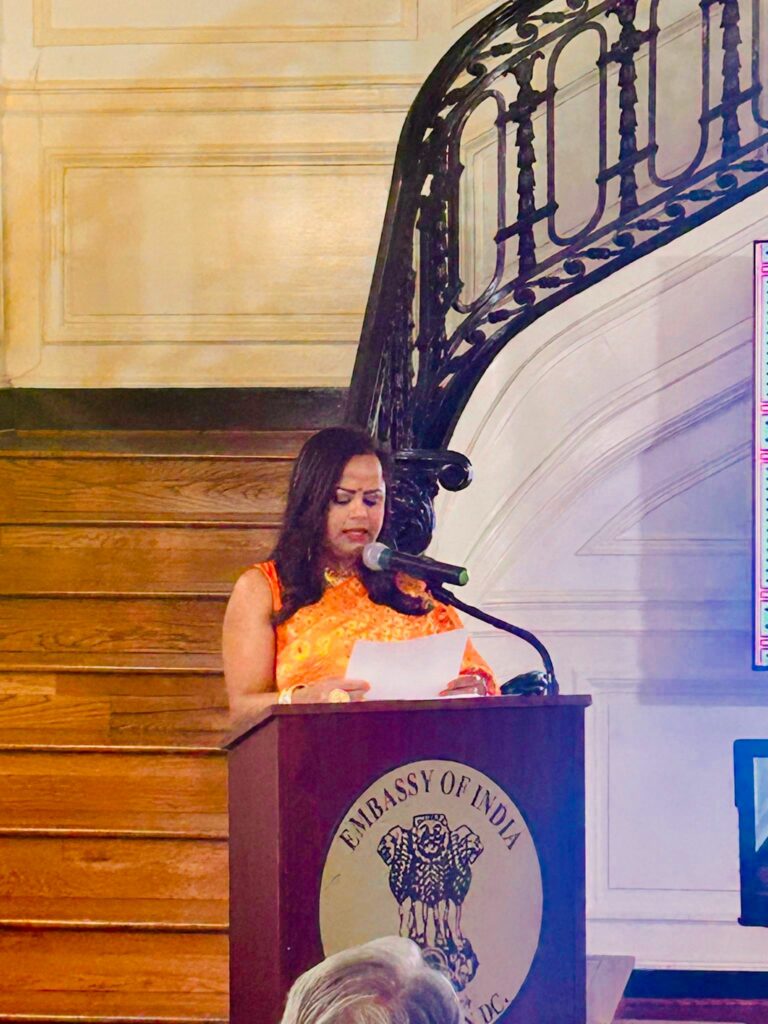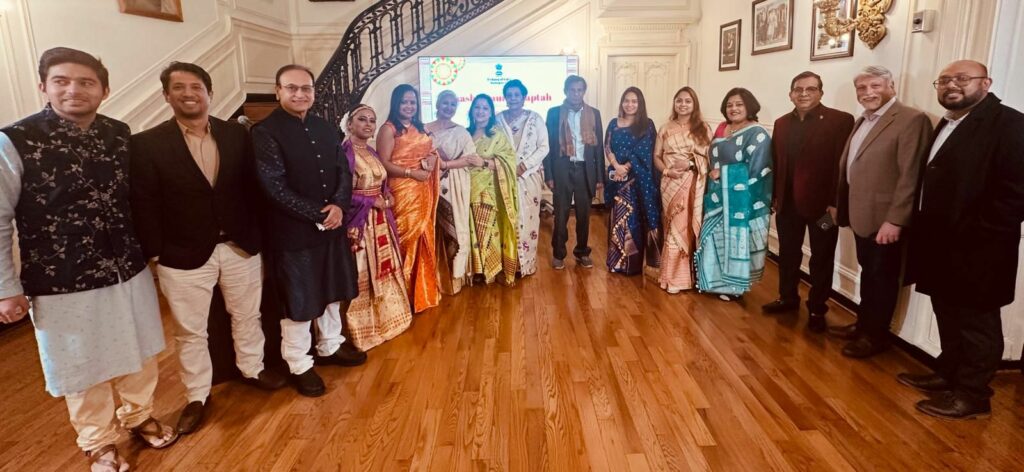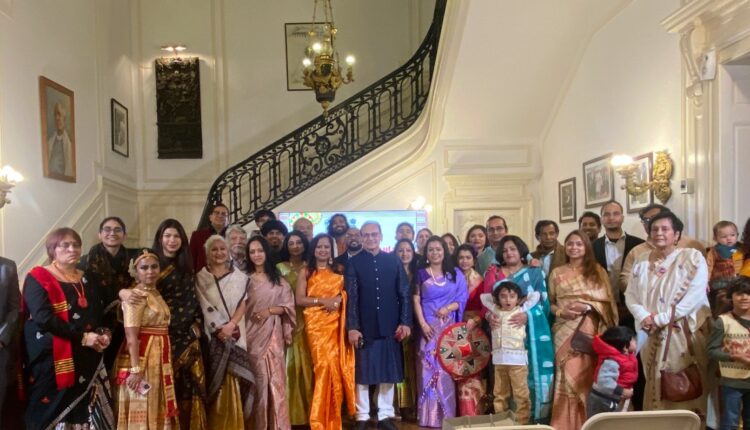Assamese Diaspora Celebrates Assamese Language’s Classical Status at Indian Embassy in Washington, DC
The Assamese Diaspora in the United States gathered in full force on Thursday, November 21st, to celebrate a momentous occasion: the official recognition of the Assamese language as a Classical Language of India. The event, held at the Embassy of India in Washington, DC, was a vibrant celebration of Assamese culture, heritage, and the longstanding contributions of the language to India’s rich linguistic tapestry. The program was organized in collaboration with the Embassy of India, Washington, DC, and Anjana Bordoloi, a social worker based in Maryland, USA.
A diverse group of attendees, including members of the Assamese community from Washington, DC, Maryland, and Virginia, joined together to honor this historic achievement. The evening was marked by emotional speeches, cultural performances, and heartfelt gratitude to those who played a role in making this recognition a reality.
The program kicked off with remarks from Neha Singh, First Secretary (Press, Information & Culture) of the Embassy of India, who expressed her pride in the recognition of Assamese as a Classical language. She underscored the significance of this moment for the Assamese-speaking community and emphasized how it serves as a testament to the importance of preserving India’s linguistic diversity.
Anjana Bordoloi, an entrepreneur and community leader who helped organize the event, spoke passionately about her pride in being Assamese. “We are proud to be Assamese,” she said. “This recognition is not just for us, but for all those who have worked tirelessly to preserve and promote the Assamese language and culture.” She thanked the Government of India, particularly Prime Minister Narendra Modi, and the Government of Assam, under the leadership of Dr. Himanta Biswa Sarma, for their unwavering support in securing the classical language status for Assamese.

A special moment came with a speech from Ms. Dina Ahmed, the former President of Assam Sahitya Sabha, who expressed her heartfelt gratitude on behalf of the global Assamese community. She paid tribute to all those who have contributed to the preservation of Assamese literature and culture, both within Assam and across the world.
Dr. Naba Goswami, a prominent cardiologist and the grandson of the legendary Assamese scholar Pandit Hemchandra Goswami, spoke on the importance of digitizing the Assamese language to ensure that future generations can continue to connect with their roots. “By embracing technology and digital tools, we can safeguard the legacy and rich heritage of Assam,” he said.
The evening also featured a spectacular cultural program showcasing the best of Assamese music and dance. Ashwin Hazarika opened the performances with an emotional rendition of the iconic song “Buku Hom Hom Kore Mur Aii,” written by the late Dr. Bhupen Hazarika. The atmosphere was further elevated by the performance of Abigya Sharma, a young Assamese dancer, who brought the Embassy to life with her energetic Bihu dance, a traditional folk dance that symbolizes the spirit of Assam.
Next, Nerina Raba from Dallas, Texas, performed a beautiful Sattriya dance, a classical dance form that has its roots in Assam and was recognized as a Classical Dance form of India. The audience was captivated by the grace and fluidity of her movements, which beautifully conveyed the essence of Assam’s artistic heritage.
As the program came to a close, Anjana Bordoloi took the stage once again to express her gratitude to the attendees and organizers. She concluded the evening with a poignant recitation of the poem “Pothar” by the renowned Assamese poet Ram Gogoi, leaving everyone with a deep sense of connection to their Assamese identity and cultural pride.

The evening’s success was also due to the presence of Embassy officials such as Mr. Jigar Raval (First Secretary (ITOU)) , Rajiv Ahuja(Second Secretary (Visa), Ravish Kumar(Second Secretary (Press, Information & Culture)), and Aditi Walunj (First Secretary (Education & Science & Technology), who were deeply impressed by the richness of Assamese culture. They were seen applauding the performances and expressing admiration for the way the Assamese community has maintained such a strong cultural legacy, even outside of India.
The event not only celebrated the linguistic and cultural heritage of Assam but also reinforced the sense of unity and pride that binds the Assamese diaspora worldwide. With the official recognition of Assamese as a Classical language, the community looks forward to further advancing the preservation and promotion of their language, literature, and traditions for generations to come.



Comments are closed.